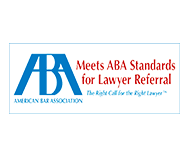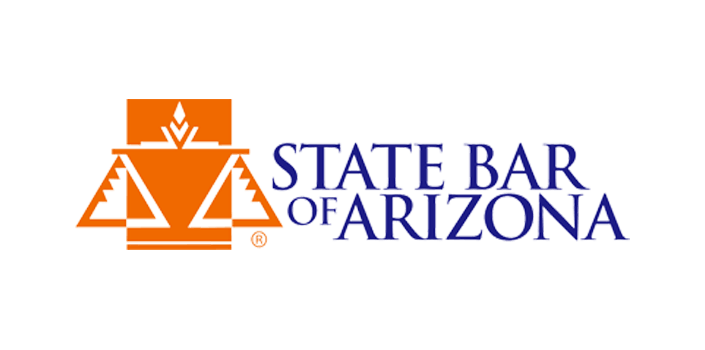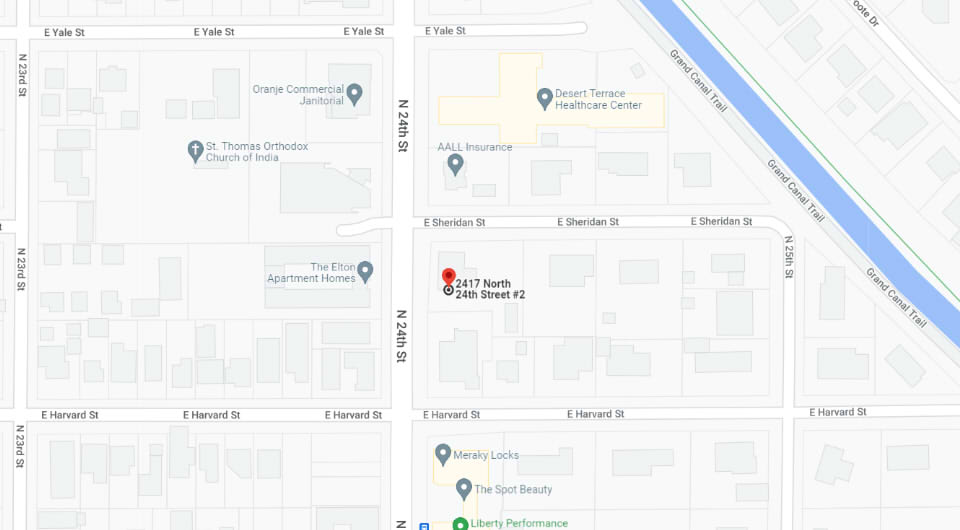Welcoming a child into the world is a moment of immense joy and anticipation. However, for some parents, this joyous occasion can quickly turn into a heart-wrenching ordeal due to unforeseen complications during pregnancy. Placental abruption, a rare but serious condition, is one of the unforeseen complications during pregnancy.
If you find yourself navigating the aftermath of placental abruption, you are not alone. At Phoenix Personal Injury Attorney Law Firm, we can help you get the compensation you deserve. Our skilled and compassionate legal professionals in Phoenix are here to help you navigate the legal process and fight for the justice your child deserves.
What is Placental Abruption?
Placental abruption, also known as abruptio placentae, is a serious medical condition that occurs during pregnancy when the placenta, which is the organ responsible for providing oxygen and nutrients to the developing fetus, separates from the inner lining of the uterus before delivery. This separation can lead to a disruption in the blood flow between the placenta and the fetus, potentially depriving the fetus of essential oxygen and nutrients.
Placental abruption can vary in severity, ranging from mild cases with minimal symptoms to severe cases that pose significant risks to both the mother and the fetus. It can occur at any point during the second half of pregnancy, but it is more common in the later stages.
Prompt medical attention is crucial if placental abruption is suspected, as both the mother's and the baby's health can be at risk. Treatment depends on the severity of the condition, and it may involve monitoring, bed rest, medication, and in severe cases, emergency delivery.
For parents whose children have suffered from placental abruption and believe it was due to medical negligence, seeking legal advice and exploring the possibility of compensation may be appropriate to help cover medical expenses and provide for the child's future needs.
How Can Medical Malpractice Contribute to Placental Abruption?
Medical malpractice can contribute to placental abruption when healthcare professionals fail to provide appropriate care, monitoring, and timely intervention during pregnancy. Negligence or errors in medical management can increase the risk of placental abruption occurring.
Some ways in which medical malpractice can play a role include:
- Failure to diagnose and treat high blood pressure or preeclampsia — If healthcare providers fail to monitor and manage conditions like high blood pressure or preeclampsia, which can strain blood vessels and increase the risk of placental abruption, they may be considered negligent.
- Inadequate monitoring of fetal and maternal health — Proper monitoring of both the mother's health and the baby's well-being is essential during pregnancy. Failure to identify warning signs of placental abruption, such as abnormal fetal heart rate patterns or maternal symptoms, can result in delayed intervention.
- Delay in emergency treatment — Placental abruption requires prompt medical attention. Delays in providing necessary interventions, such as emergency delivery, blood transfusions, or other life-saving measures, can worsen the outcome for both the mother and the baby.
- Incorrect use of medications — Certain medications may be contraindicated during pregnancy due to their potential to increase the risk of placental abruption. Incorrectly prescribing or administering medications can lead to complications.
- Failure to address trauma or accidents — If a pregnant individual experiences trauma, such as a car accident or a fall, medical professionals should assess the risk of placental abruption and take appropriate measures to monitor and care for the pregnancy.
- Neglecting to address known risk factors — Medical practitioners should take into account a patient's medical history and risk factors. Neglecting to address known risk factors, such as a history of placental abruption in a previous pregnancy, could lead to inadequate precautions.
- Inadequate communication — Poor communication between healthcare providers, improper documentation, and failure to share critical information can all contribute to inadequate care and missed opportunities for early intervention.
- Surgical errors — Surgical procedures, such as cesarean sections, must be performed with precision and care. Surgical errors can lead to trauma that increases the risk of placental abruption.
Note that each case is unique, and not all cases of placental abruption are the result of medical malpractice. However, if negligence on the part of healthcare providers is suspected to have contributed to placental abruption and subsequent harm to the mother or child, consulting with an experienced personal injury attorney can help determine whether pursuing legal action for compensation is appropriate.
Signs and Symptoms of Placental Abruption
The signs and symptoms of placental abruption can vary depending on the severity of the condition. Some individuals may experience mild symptoms, while others may experience more pronounced signs.
Note that not all cases of placental abruption will present all of these symptoms, and some symptoms may overlap with other pregnancy-related conditions. If you suspect placental abruption, seek immediate medical attention.
Common signs and symptoms include the following:
- Vaginal bleeding — Vaginal bleeding can vary from light spotting to heavy bleeding. The bleeding may be accompanied by clots and can occur suddenly or gradually.
- Abdominal pain — Abdominal pain can range from mild discomfort to severe, sharp pain. It is often localized and may be constant or intermittent.
- Uterine contractions — Painful uterine contractions that are not associated with normal Braxton Hicks contractions can indicate placental abruption.
- Back pain — Intense back pain, often described as a deep, constant ache, may occur in some cases.
- Uterine tenderness — The uterus may feel tender or sore to the touch.
- Fetal distress — A change in the baby's heart rate pattern can indicate fetal distress. This may be detected during prenatal monitoring.
- Change in fetal movement — A decrease in fetal movement or a sense that the baby's movements have slowed down.
- Hardened uterus — The uterus may feel unusually firm or tense.
- Hypertension — A sudden increase in blood pressure may be associated with placental abruption.
- Signs of shock — Severe cases of placental abruption can cause shock, including rapid heartbeat, shallow breathing, pale or clammy skin, and dizziness.
Impact on Child and Family
The impact of placental abruption on both the child and the family can be profound, as it can lead to a range of physical, emotional, and financial challenges. The impact of placental abruption on the child can include the following:
- Birth injuries — Placental abruption can result in oxygen and nutrient deprivation to the fetus, potentially leading to birth injuries such as cerebral palsy, developmental delays, and cognitive impairments.
- Premature birth — In severe cases, placental abruption may necessitate premature delivery, which can increase the risk of respiratory distress syndrome, infections, and other health issues in the newborn.
- Low birth weight — Premature birth due to placental abruption can result in low birth weight, which may contribute to health challenges and developmental delays.
- Long-term health complications — Children who experience placental abruption-related complications may require ongoing medical care, therapy, and interventions throughout their lives.
The impact of placental abruption on the family can include the following:
- Emotional trauma — Parents may experience significant emotional distress due to the unexpected complications and potential health challenges their child faces.
- Financial strain — The costs associated with medical care, therapies, assistive devices, and ongoing support for a child with birth injuries can place a substantial financial burden on the family.
- Altered quality of life — Families may need to make lifestyle adjustments to accommodate the needs of their child, which can impact daily routines, career paths, and social activities.
- Caretaking demands — Parents may need to provide constant care and support for their child, which can be physically and emotionally demanding.
Given the potential long-term impact on both the child and the family, pursuing compensation for placental abruption-related injuries can be crucial to ensure that families have the financial resources necessary to provide the best possible care and support for their child's recovery and development. Consulting with a personal injury attorney experienced in birth injury cases can help families understand their rights and options for seeking compensation from those responsible for the medical negligence that contributed to the placental abruption.
Establishing Liability: Proving Negligence in Placental Abruption Cases
Establishing liability and proving negligence in placental abruption cases involves demonstrating that healthcare providers failed to meet the expected standard of care, which directly led to the occurrence of placental abruption and subsequent harm to the mother or child. Here is how it generally works:
- Duty of care — The first step is to establish that the healthcare providers owe the patient a duty of care. In the context of pregnancy and childbirth, healthcare professionals have a duty to provide reasonable care that meets accepted medical standards.
- Breach of duty — To prove negligence, it must be shown that the medical professional breached their duty of care. This means they did not provide the level of care that other competent professionals would in similar circumstances. For placental abruption cases, this could involve errors in prenatal monitoring, failure to address risk factors, inadequate responses to symptoms, or improper medical decisions.
- Causation — It is crucial to demonstrate that the breach of duty directly caused or significantly contributed to the occurrence of placental abruption. You must show that the healthcare provider's actions or inactions were a substantial factor in the outcome.
- Damages — Plaintiffs must provide evidence of the harm that resulted from the placental abruption. This could include medical records, expert testimony, and documentation of the injuries suffered by the mother and child.
- Expert testimony — In most malpractice cases, expert testimony is necessary to establish the standard of care that should have been provided and to show how the healthcare provider's actions deviated from that standard.
Proving negligence in placental abruption cases can be complex due to the medical intricacies involved. Therefore, it is crucial to consult with experienced personal injury attorneys who specialize in birth injury cases. These professionals can help gather evidence, collaborate with medical experts, and build a strong case to establish liability and seek compensation for the harm caused by medical negligence.
Steps Involved in Pursuing Compensation for Placental Abruption
Pursuing compensation for placental abruption-related injuries involves several important steps. While the specific process may vary depending on the circumstances, here is a general outline of the key steps involved:
- Consultation with an attorney — Seek the expertise of a personal injury attorney experienced in birth injury cases. During the initial consultation, you will discuss the details of your situation, medical records, and potential legal options.
- Case evaluation — The attorney will assess the viability of your case by reviewing medical records, consulting medical experts, and determining if there is evidence of medical negligence that contributed to the placental abruption.
- Gathering evidence — Work with your attorney to gather all relevant medical records, test results, and any other documentation that supports your claim. This evidence will be crucial in establishing liability.
- Consulting medical experts — Medical experts play a key role in birth injury cases. They can provide opinions on whether medical negligence occurred and how it contributed to the placental abruption and resulting injuries.
- Sending a demand letter — Your attorney may draft and send a demand letter to the healthcare provider or facility, outlining the allegations of negligence and the damages you are seeking. This letter can be a starting point for negotiations.
- Negotiations — Many cases are settled through negotiations before going to court. Your attorney will negotiate with the defendant's legal representatives and insurance companies to reach a fair settlement that covers medical expenses, future care, and other damages.
- Filing a lawsuit — If negotiations do not lead to a satisfactory resolution, your attorney may file a formal lawsuit. This initiates the legal process and sets the stage for court proceedings.
- Discovery — Both sides gather additional evidence and exchange information through the discovery process. This includes depositions, interrogatories, and document requests.
- Mediation and settlement conferences — Courts often require parties to attend mediation or settlement conferences to explore options for resolving the case before trial.
- Trial preparation — If a settlement is not reached, your attorney will prepare for trial, which involves crafting a legal strategy, selecting witnesses, and developing a compelling case presentation.
- Trial — The trial involves presenting evidence, calling witnesses, cross-examining the opposing side's witnesses, and making arguments before a judge and jury.
- Verdict or settlement — At the end of the trial, the judge or jury will decide whether the defendant is liable for the placental abruption injuries. You will be awarded compensation if the defendant is found liable.
The process can be intricate and time-consuming, but having a skilled personal injury attorney by your side can significantly alleviate the burden. They will guide you through each step, advocate for your rights, and work towards securing the compensation necessary to support your child's recovery and future well-being.
Types of Compensation Available
In placental abruption cases, families may be eligible for different types of compensation to address the financial, physical, and emotional challenges they face as a result of the injuries. The types of compensation available can include:
- Medical expenses — Compensation can cover past, current, and future medical costs related to placental abruption injuries. This includes hospital stays, surgeries, doctor visits, medications, therapies, and medical equipment.
- Rehabilitation and therapy — Costs associated with physical therapy, occupational therapy, speech therapy, and other rehabilitative services aimed at helping the child recover and develop to their fullest potential.
- Long-term care — If the child requires ongoing care and assistance due to birth injuries resulting from placental abruption, compensation can help cover the costs of in-home care, nursing services, and other support.
- Loss of enjoyment of life — If the child's injuries impact their ability to engage in activities they would have otherwise enjoyed, compensation may be provided to address this loss.
- Pain and suffering — Compensation may be awarded to address the physical pain, emotional distress, and mental anguish endured by the child and the family due to the placental abruption injuries.
- Loss of earning capacity — In cases where the child's injuries may impact their ability to work and earn income in the future, compensation can help address this potential financial loss.
- Future medical expenses — Compensation can cover anticipated medical costs that the child will likely incur in the future due to the placental abruption injuries, such as ongoing treatments, surgeries, and therapies.
- Emotional distress — Both the child and the family may experience significant emotional distress as a result of the injuries. Compensation can help acknowledge and address this aspect of the impact.
- Punitive damages — In cases of extreme negligence or intentional misconduct, punitive damages may be awarded to punish the responsible party and deter similar behavior in the future.
Find a Phoenix Medical Malpractice Injury Attorney Near Me
The road to seeking compensation for placental abruption injuries may be complex, but it is a path that can lead to a brighter future for your child and your family. By pursuing justice and accountability, you are not just advocating for financial support, but for your child's rights and their chance at a life filled with possibilities.
At Phoenix Personal Injury Attorney Law Firm, our team of experienced birth injury lawyers stands ready to walk beside you on this journey. We understand the intricacies of birth injury cases and the unique challenges they pose. With compassion and expertise, we will help you navigate the legal process, gather evidence, and build a strong case that seeks to secure the compensation your child deserves. Call us today at 602-641-9589 for a free consultation.










